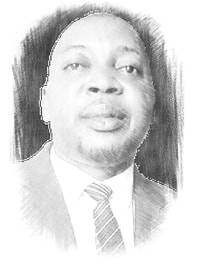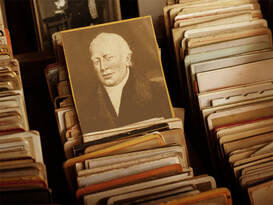II Peter 2
|
II Peter 2:1:
But there were also false prophets among the people, even as there will be false teachers among you, who will secretly bring in destructive heresies, even denying the Lord who bought them, and bring on themselves swift destruction. |
destructive = damnable [KJV]
 Oscar Amaechina Oscar Amaechina
The Apostle Paul was emphatic when he warned the Philippian Church to be careful of this group of people. "For many, of whom I have often told you and now tell you even with tears, walk as enemies of the cross of Christ"(Philippians 3:18). They pretend to be godly but secretly work against the Gospel. They oppress and secretly persecute those who love and preach the cross.
Jesus also warned His disciples to be careful of those who are demonic but parade themselves as angels of light: "Watch out for false prophets. They come to you in sheep’s clothing, but inwardly they are ferocious wolves" (Mathew 7:15). In our time, there are similar false prophets, and their mode of operation has never changed. "But there were also false prophets among the people, just as there will be false teachers among you. They will secretly introduce destructive heresies, even denying the sovereign Lord who bought them — bringing swift destruction on themselves" (2 Peter 2:1). There are now false teachers whose mandate is to introduce and teach errors that will take Christ out of the center of Christianity and place Him in the margin or remove Him altogether. --Oscar Amaechina; Christian Post: Beware of false prophets and false brethren 2.24.22 |
 Don Krow
Don Krow
False teaching and teachers “deny the Lord that bought them” (2 Pet. 2:1), that is, they deny the Lordship, his right to control one’s life. Although a person may be religious, their life and actions can deny Him. “They profess that they know God; but in works they deny him, being abominable, and disobedient, and unto every good work reprobate” (Titus 1:16). The Greek word “deny” is arneomai and means “to contradict” (Vine’s Greek Lexicon). False teaching contradicts Jesus as Lord, Master, Ruler and King. False teaching contradicts Jesus words, teachings and lifestyle. A teaching of justification (being right with God) without sanctification (being under his rule) is false and should be avoided. A teaching of “grace” that says, “after we become Christians we can do just as we like” (Jude 1:4, Living Bible) is a false teaching on grace that is addressed by the Apostle Paul in Romans 6:1-2,15 and Titus 2:11-13. --Don Krow; Don Krow Ministries
 Gary D Long Files
Gary D Long Files
There are two key words in this verse which have caused great theological debate. The principal one, as previously stated, is agorazõ, which is translated “bought.” The other word is despostës, which is translated “Lord.” Almost every universal redemptionist says this verse teaches that the false prophets, who are obviously non-elect, are nevertheless bought (redeemed) by the blood of Christ. Yet they say, since these false prophets continue to deny Christ and never believe, there must be an aspect of redemption (as reflected in this verse by the word agorazõ) which was designed for the non-elect as well as for the elect. The issue between the modified and five-point Calvinists, therefore, is twofold. First, it must be determined whether “Lord” (despotes) refers to God the Father or to God the Son as mediator, or to God the Father or God the Son as sovereign Lord. Second, it must be decided whether “bought” (agorazõ) is to be understood redemptively (referring to salvation or soteriologically), as most modified Calvinists claim, ornon-redemptively (non-soteriologically), as most consistent Calvinists claim.
--Gary D Long; Redemption in II Peter 2:1
--Gary D Long; Redemption in II Peter 2:1
|
II Peter 2:2-3:
And many shall follow their pernicious ways; by reason of whom the way of truth shall be evil spoken of. And through covetousness shall they with feigned words make merchandise of you: whose judgment now of a long time lingereth not, and their damnation slumbereth not |
In II Peter 2:2, "destructive" or "pernicious" (KJV) is more accurately translated "lascivious." Lascivious means "to excite to lust or lewdness." These heresies will seem to provide something we carnally consider very desirable for our well-being. But all the while the liberties (verse 19) they promise in their false teachings will be so destructive that they only serve to deny Jesus Christ (verse 1). -Bible Tools
|
We find in verse 3 that the false teachers are themselves driven by covetousness. They desire to get something for themselves—power over people, possibly the perception of being a scholar, maybe popularity or money. With that motivation, they prove they are not led by the Holy Spirit.
Why are false teachings so deserving of condemnation? False teaching perverts the direction and outcome of our lives, unless we reject or repent of it, if we had once accepted it. On the other hand, possessing true doctrines and beliefs is of exceeding importance because what a person believes determines his attitude and conduct. Right thoughts precede right actions. Our beliefs express themselves in social relations, daily work and home life.
Why are false teachings so deserving of condemnation? False teaching perverts the direction and outcome of our lives, unless we reject or repent of it, if we had once accepted it. On the other hand, possessing true doctrines and beliefs is of exceeding importance because what a person believes determines his attitude and conduct. Right thoughts precede right actions. Our beliefs express themselves in social relations, daily work and home life.
Alarming as II Peter 2:1-3 is, Peter neither tells us what heresy is in general, nor indicates what the future heresies will be. Besides these, he does not identify the real source of heresy either.
Heresy is the translation of the Greek hairesis—meaning literally "choice" or "selection"—which has an interesting secular as well as biblical history. Until its biblical use, it had no evil connotation. Even in the Bible, it is mostly used to refer to a party or a philosophy with which a person had chosen to identify or ally himself. Thus, hairesis is frequently translated "sect." In Acts, Luke applies it to the Sadducees (5:17) and the Pharisees (15:5; 26:5). Outsiders also used hairesis in Acts 24:5, 14 and 28:22 to identify the Christian church.
However, when Paul and Peter's writings began circulating, hairesis meant a destructive element within the church that creates division through consciously formed opinions and ideas in disagreement with the orthodox teachings of the apostles. Paul condemns it in Galatians 5:20 as one of "the works of the flesh." Sometimes it is translated "factions" or "party spirit," but regardless of its translation, Paul says that people who practice such things will not inherit the Kingdom of God (verse 21)! -Damnable Heresies
Heresy is the translation of the Greek hairesis—meaning literally "choice" or "selection"—which has an interesting secular as well as biblical history. Until its biblical use, it had no evil connotation. Even in the Bible, it is mostly used to refer to a party or a philosophy with which a person had chosen to identify or ally himself. Thus, hairesis is frequently translated "sect." In Acts, Luke applies it to the Sadducees (5:17) and the Pharisees (15:5; 26:5). Outsiders also used hairesis in Acts 24:5, 14 and 28:22 to identify the Christian church.
However, when Paul and Peter's writings began circulating, hairesis meant a destructive element within the church that creates division through consciously formed opinions and ideas in disagreement with the orthodox teachings of the apostles. Paul condemns it in Galatians 5:20 as one of "the works of the flesh." Sometimes it is translated "factions" or "party spirit," but regardless of its translation, Paul says that people who practice such things will not inherit the Kingdom of God (verse 21)! -Damnable Heresies
|
2 Peter 2:4.
For if God did not spare the angels who sinned, but cast them down to hell and delivered them into chains of darkness, to be reserved for judgment; and did not spare the ancient world, but saved Noah, one of eight people, a preacher of righteousness, bringing in the flood on the world of the ungodly; and turning the cities of Sodom and Gomorrah into ashes, condemned them to destruction, making them an example to those who afterward would live ungodly; and delivered righteous Lot, who was oppressed by the filthy conduct of the wicked (for that righteous man, dwelling among them, tormented his righteous soul from day to day by seeing and hearing their lawless deeds)-- then the Lord knows how to deliver the godly out of temptations and to reserve the unjust under punishment for the day of judgment, and especially those who walk according to the flesh in the lust of uncleanness and despise authority. They are presumptuous, self-willed. They are not afraid to speak evil of dignitaries. |
Notice that Peter makes it very clear that rebellion against God in whatever form will ultimately bring destruction and judgment from God. It makes no difference if angels sinned – or the people of Noah’s day – or the homosexual movement that was prevalent in Lot’s day. Note also the effect of immorality upon Lot; he was oppressed by these people’s behavior, which means to be harassed and worn down. It also says that he was tormented, which means to experience pain in his soul by what he heard and saw these people doing. [SOURCE: Covenant Keepers]
|








